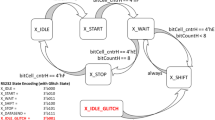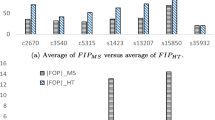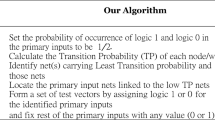Abstract
Many Trojan detection technologies are too time-consuming to cover the entire state space in complex designs. The valuable verification resources should be allocated to regions vulnerable to security threats. However, there are few studies on security verification resources allocation. To fill in this gap, we design a security game framework to guide the security verification resources allocation. The framework utilizes the Trojan vulnerability measurement as player utilities, so the utility value determination doesn't need any expert prior knowledge to the specific design under test. A new Stackelberg security game specific to hardware security is also proposed. The new game model minimizes the defender utility loss with the limited verification resources restriction. Due to the lack of study on RTL Trojan vulnerability measurement, we also propose a RTL security vulnerability measurement to measure each logic propagation path vulnerability quantitatively and efficiently. We apply the proposed Stackelberg security game framework to Trust-hub Trojan benchmarks written by Verilog RTL code. The experiments demonstrate that the most suspicious logic propagation path is one part of Trojan in most cases and the proposed RTL security vulnerability measurement is effective. Also, the allocation strategy calculated by security game could get security confidence as high as possible with all available resources and may also cover the Trojan even when the carefully design Trojan evade the vulnerability measurement.



Similar content being viewed by others
References
Ardeshiricham, A., Wei, H., Marxen, J., Kastner, R.: Register transfer level information flow tracking for provably secure hardware design. In: Design, Automation & Test in Europe Conference & Exhibition (DATE), pp. 1691–1696 (2017)
Boubezari, S., Cerny, E., Kaminska, B., Nadeau-Dostie, B.: Testability analysis and test-point insertion in rtl vhdl specifications for scan-based bist. IEEE Trans. Computer Aided Des. Integr. Circuits Syst. 18(9), 1327–1340 (1999)
Dupuis, S., Flottes, M.L., Natale, G.D., Rouzeyre, B.: Protection against hardware trojans with logic testing: proposed solutions and challenges ahead. IEEE Des. Test 99, 1 (2018)
Fern, N., Kulkarni, S., Cheng, K.T.: Hardware trojans hidden in RTL don’t cares-automated insertion and prevention methodologies. In: 2015 IEEE International Test Conference (ITC), pp. 1–8 (2015)
Fern, N., San, I., Cheng, K.T.: Detecting hardware trojans in unspecified functionality through solving satisfiability problems. In: 2017 22nd Asia and South Pacific Design Automation Conference (ASP-DAC), pp. 598–504 (2017)
Graf, J.: Trust games: How game theory can guide the development of hardware trojan detection methods. In: 2016 IEEE International Symposium on Hardware Oriented Security & Trust (HOST), pp. 91–96 (2016)
Guo, X., Dutta, R.G., Mishra, P., Jin, Y.: “Scalable soc trust verification using integrated theorem proving and model checking. In: 2016 IEEE International Symposium on Hardware Oriented Security & Trust (HOST), pp. 124–129 (2016)
Gupte, A., Ahmed, S., Cheon, M.S., Dey, S.: Solving mixed integer bilinear problems using milp formulations. Siam J. Optim. 23(2), 721–744 (2011)
Hicks, M., Finnicum, M., King, S.T., Martin, M.M.K., Smith, J.M.: Overcoming an untrusted computing base: Detecting and removing malicious hardware automatically. In: IEEE Symposium on Security and Privacy, S&P, pp. 159–172 (2010)
Hu, W., Mao, B., Oberg, J., Kastner, R.: Detecting hardware trojans with gate-level information-flow tracking. IEEE Comput. 49(8), 44–52 (2016)
Hu, W., Ardeshiricham, A., Gobulukoglu, M.S., Wang, X., Kastner, R.: Property specific information flow analysis for hardware security verification. In: 2018 IEEE/ACM International Conference on Computer-Aided Design (ICCAD), pp. 1–8 (2018)
Huang, Z., Wang, Q., Yang, P.: Hardware trojan: reasearch progress and new trends on key problems. Chin. J. Comput. 42(05), 993–1017 (2019)
Jian, L., Smith, A.M., Vorobeychik, Y.: Multidefender security games. IEEE Intell. Syst. 32(1), 50–60 (2017)
Kamhoua, C.A., Rodriguez, M., Kwiat, K.A.: Testing for hardware trojans: a game-theoretic approach, Decision and Game Theory for Security, pp. 360–369 (2014)
Li, H., Liu, Q., Zhang, J.: A survey of hardware trojan threat and defense. Integr. VLSI J. 55(SEP), 426–437 (2016)
Rajendran, J., Vedula, V., Karri, R.: Detecting malicious modifications of data in third-party intellectual property cores. In: 2015 52nd ACM/EDAC/IEEE Design Automation Conference (DAC), pp. 112:1–112:6 (2015)
Rajendran, J., Vedula, V., Karri, R.: Formal security verification of third party intellectual property cores for information leakage. In: 2016 29th International Conference on VLSI Design & International Conference on Embedded Systems (VLSID), pp. 547–552 (2016)
Rathmair, M., Schupfer, F.: Hardware trojan detection by specifying malicious circuit properties. In: 2013 IEEE 4th International Conference on Electronics Information & Emergency Communication, pp. 317–320 (2013)
Saad, W., Sanjab, A., Wang, Y., Kamhoua, C., Kwiat, K.: Hardware trojan detection game: a prospect-theoretic approach. IEEE Trans. Veh. Technol. 99, 1–1 (2017)
Salmani, H., Tehranipoor, M.: Analyzing circuit vulnerability to hardware trojan insertion at the behavioral level. In: 2013 IEEE International Symposium on Defect and Fault Tolerance in VLSI and Nanotechnology Systems (DFTS), pp. 190–195 (2013)
Saha, S., Chakraborty, R.S., Mukhopadhyay, D.: Testability based metric for hardware trojan vulnerability assessment. In: 2016 Euromicro Conference on Digital System Design (DSD), pp. 503–510 (2016)
Sinha, A., Nguyen, T.H., Kar, D., Brown, M., Tambe, M., Jiang, A.X.: From physical security to cybersecurity. J. Cybersecur. 1, tvy007 (2015)
Smith, A., Vorobeychik, Y., Letchford, J.: Multidefender security games on networks. ACM Sigmetrics Perform. Eval. Rev. 41(4), 4–7 (2014)
Smith, A.M., Mayo, J.R., Kammler, V., Armstrong, R.C., Vorobeychik, Y.: Using computational game theory to guide verification and security in hardware designs. In: 2017 IEEE International Symposium on Hardware Oriented Security & Trust (HOST), pp. 110–115 (2017)
Tang, Y., Wang, J., Li, S., Liu, Y.: Analysis on infrared spectrum based hardware trojan detection approach. Comput. Eng. Appl. 53(12), 110–132 (2017)
Trust-hub.: http://www.trust-hub.org. Accessed 7 June 2020
Vorobeychik, Y., Letchford, J.: Securing interdependent assets. Auton. Agents Multiagent Syst. 29(2), 305–333 (2015)
Waksman, A., Suozzo, M., Sethumadhavan, S.: FANCI: identification of stealthy malicious logic using boolean functional analysis. In: 2013 ACM SIGSAC Conference on Computer and Communications Security (CCS), pp. 697–708 (2013)
Wang, C., Cai, Y., Zhou, Q., Wang, H.: Asax: Automatic security assertion extraction for detecting hardware trojans. In: 2018 23rd Asia and South Pacific Design Automation Conference (ASP-DAC), pp. 84–89 (2018)
Wolf, C.: Yosys open synthesis suite. http://www.clifford.at/yosys/. Accessed 7 June 2020
Xiao, K., Forte, D., Jin, Y., Karri, R., Bhunia, S., Tehranipoor, M.: Hardware trojans: lessons learned after one decade of research. Acm Trans. Des. Autom. Electron. Syst. 22(1), 6 (2016)
Yao, S., Chen, X., Zhang, J., Liu, Q., Wang, J., Xu, Q., Wang, Y., Yang, H.: FASTrust: feature analysis for third-party IP trust verification. In: 2015 IEEE International Test Conference (ITC), pp. 1–10 (2015)
Zhang, X., Tehranipoor, M.: Case study: Detecting hardware trojans in third-party digital ip cores. In: 2011 IEEE International Symposium on Hardware-Oriented Security and Trust (HOST), pp. 67–70 (2011)
Zhang, J., Yuan, F., Wei, L., Liu, Y., Xu, Q.: VeriTrust: verification for hardware trust. IEEE Trans. CAD Integr. Circuits Syst. 34(7), 1148–1161 (2015)
Funding
Funding was provided by National Natural Science Foundation of China (61774091).
Author information
Authors and Affiliations
Corresponding author
Rights and permissions
About this article
Cite this article
Wang, H., Cai, Y. & Zhou, Q. A game theory approach for RTL security verification resources allocation. CCF Trans. HPC 3, 57–69 (2021). https://doi.org/10.1007/s42514-020-00054-5
Received:
Accepted:
Published:
Issue Date:
DOI: https://doi.org/10.1007/s42514-020-00054-5




